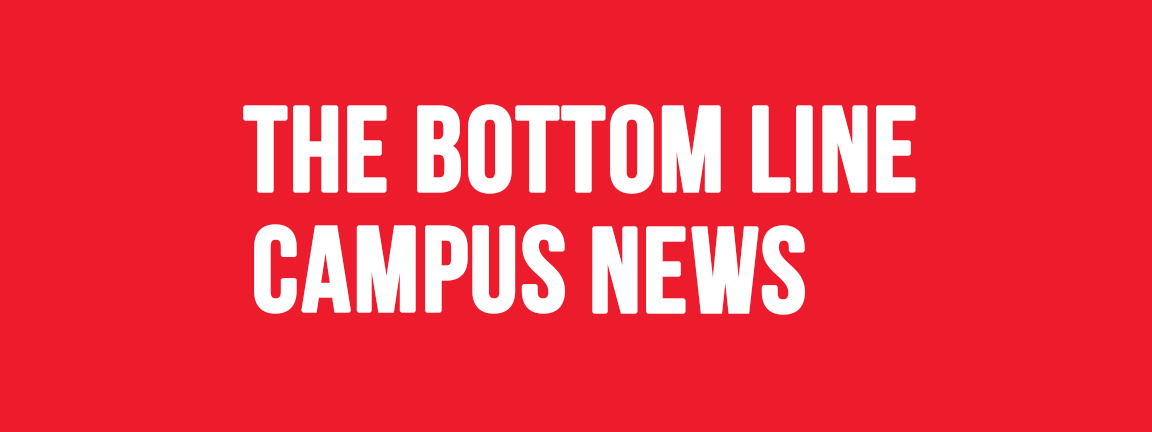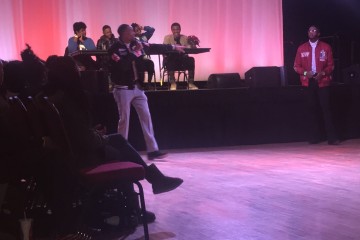The Future of Journalism at FSU

Sometimes when unexpected situations occur, you have to be able to act the best way possible and make rational decisions in order to continue moving forward. For the Journalism minor here at Frostburg State University (FSU), the English department did just that, due to the passing of Dr. Frank Parks a few weeks ago. Fortunately, the English department will continue to follow Dr. Parks’ idea for the Journalism minor, with a few implications. Professor Andrew Duncan will be taking on the role as the new coordinator of the Journalism minor next fall.
Professor Andy Duncan has been working in the Journalism field for about 30 years, and has the qualities of a great role model and leader that every student needs during their academic careers. He teaches a plethora of Journalism courses at FSU including Journalistic Writing, Socially Networked Journalism, along with Advanced English Composition, and now, he will be teaching Advanced News and Feature Writing.
Although Duncan will be going on sabbatical this spring, he plans to take on the role as the chair of the Journalism minor as early as fall ’15. As he says he has “done a little of everything,” he is confident that, “It [The Journalism minor] will continue.”
Duncan also says because he is going on sabbatical, he will not get involved immediately until this fall. “We are not going to make immediate changes,” says Duncan. He says when he returns him, Dr. Charles Ewers, and Dr. Sydney Duncan, along with the rest of the faculty will begin developing a plan on changes they would like to make to the minor.
Some of the main things the English Department will be focusing on include changing or removing a few courses from the catalog because a few of them are not offered at the university. Also, Duncan says, “We will begin discussing other English classes that are not related to the minor,” as well as other courses like history, political science, and so on.
Duncan, as well as the rest of the English Department, knew that he would be taking on the role as the new coordinator, but he says, “We did not expect it to happen this way.” He says unfortunately, people pass away, retire, or move onto another career, but “the institution lives, and the program survives.”
Dr. Sydney Duncan, the department chair of English, says the Journalism minor will continue to focus on the main components, which include communication, interviewing, organization, and writing in order for students in the minor to “get a sense of what the workforce is looking for.” She says the English department aims to make it [Journalism], a “strong, effective minor.”
She also says, it would be ideal to reach out to jobs hiring Journalism students to see “what they want those [students] to know,” she continues, “We want to give [the students] a strong background.”
“Our ultimate goal is to prepare the best we know how by building a program that serves them,” says Dr. Duncan.
On the same page as both Professor Duncan and Dr. Duncan, Dr. Ewers says, “We need to maintain the basic principles of Journalism,” as well as “keeping the students updated on the methods journalists use today.” He also says, “We want to make the minor as accessible to the students as we can.”
To go along with making the minor more accessible, they would like to make the minor more accommodating for students as well.
Dr. Duncan says Professor Duncan will be a great coordinator and she describes him as a “complete journalistic enterprise,” in reference to his plethora of experience in the field of Journalism.
Because the number of readers and consumers are increasing daily, Duncan says, “Certainly there is a need for journalists more than ever,” and he thinks recruitment for the Journalism minor is crucial. Duncan says in terms of recruitment he wants to present at more open houses, post more posters about the minor around campus, and do more class visitations to provide students with information. “When students know about it [Journalism minor], that is how they get interested,” says Duncan.
Dr. Duncan also says, “I would like to see more recruiting for the minor.”
Duncan says, “Students need to cover student events.”
Although changes will be made, there are steps the department has to take in order to make these changes. These steps include the department coming up with a plan, the plan being voted on by the department, the professional writing committee votes, and finally, the Faculty Senate will vote. Once the plan has been voted on, then they can begin to make changes to the minor, but for now, the Journalism minor will continue to grow and help students pursue their dreams as writers.
Professor Duncan wants students to know that “If you have interests in current events, activism, self-publishing, and social media, then you should consider the minor.”
“If you are planning on declaring the minor [Journalism], then do the paperwork, talk to registrar, and Joanna Skelley, administrative assistant for the English Department, Dr. Duncan, or Dr. Ewers if you are interested,” says Duncan.
As you can see, the Journalism minor will continue to grow and is in great hands, so if you are interested in becoming a journalism minor, then feel free to stop by one of these professor’s offices in Dunkle Hall.
For more information on the Journalism minor, please visit:
• http://www.frostburg.edu/fsu/assets/File/dept/pdf/jour.pdf
• http://www.frostburg.edu/dept/engl/minors/journalism/




